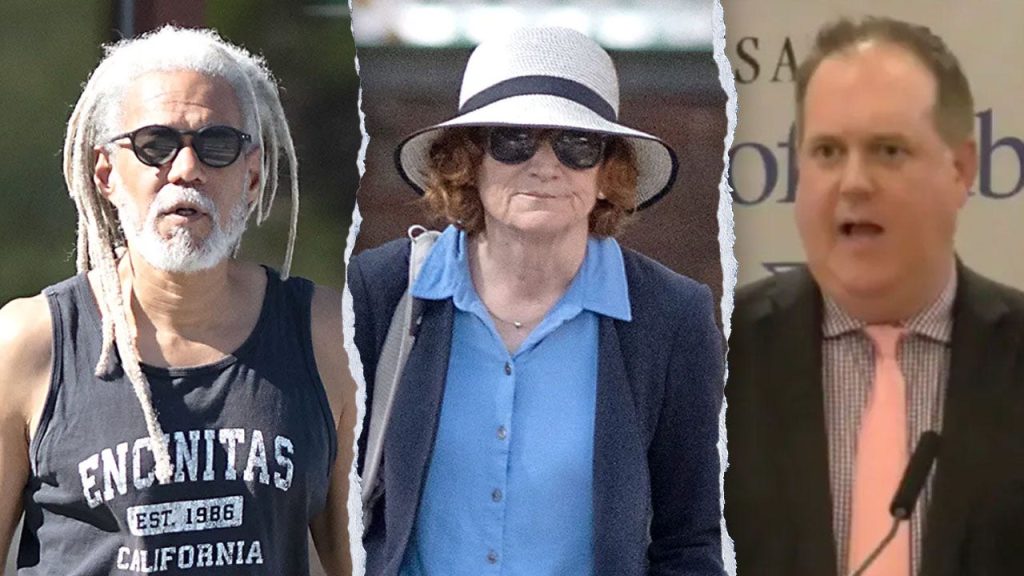Harvard’s Silence on Political Violence Raises Questions
In a controversy that has drawn increasing scrutiny, Harvard University has repeatedly declined opportunities to condemn political violence following revelations about a 2018 panel hosted by its Carr-Ryan Center for Human Rights. The panel, titled “You Don’t Stand Around and Let People Get Hurt: Antifascism After Charlottesville,” featured University of North Carolina professor Dwayne Dixon making arguments that appeared to justify armed political action under certain circumstances.
Unlike other academic institutions faced with similar controversies, Harvard has maintained a conspicuous silence when directly asked about its position on political violence. This stands in stark contrast to UNC, which promptly issued a statement reaffirming “its commitment to rigorous debate, respectful engagement and open dialogue in support of free speech” while emphasizing that “there is no place for or tolerance of inciting or extending sympathy toward violence of any kind within the UNC community.” Similarly, the University of Chicago, dealing with a faculty member’s arrest at an anti-ICE rally, declared that “violence runs contrary to the university’s core values of free and open inquiry, dialogue and debate.” Harvard’s reluctance to offer similar clarity has raised questions about its institutional stance.
The 2018 panel at the heart of the controversy featured Dixon, then a member of Redneck Revolt, an offshoot of the far-left John Brown Gun Club, which has since disbanded. During his presentation, Dixon framed contemporary political action in the context of American slavery, suggesting that sometimes violent means may be necessary to achieve political goals. He specifically referenced Frederick Douglass, claiming the abolitionist “saw no hope that slavery would ever be abolished by moral or political means” and that Douglass believed “the system must be met with its own weapons.” This historical framing appeared to serve as justification for considering armed resistance in modern political contexts.
What makes the panel particularly controversial is the enthusiastic reception Dixon received from Harvard faculty participants. Professor Timothy McCarthy invoked the Trump administration in the context of “fascism” and suggested “this may indeed be a moment that calls for a more robust integration of tactics and strategies that include both violence and nonviolence.” Professor Lisa McGirr admitted she entered “relatively skeptical” about armed protesters but ended up “kind of convinced, actually” that “there is a place for this.” Perhaps most striking was Professor Vincent Brown’s introduction, in which he joked that the debate over “whether it’s OK to punch a Nazi” was “settled by WWII and ‘Raiders of the Lost Ark'”—a comment that elicited laughter from the audience.
Harvard’s current silence appears to be sheltered under its institutional neutrality policy, implemented last year following recommendations from an “Institutional Voice Working Group.” This policy generally prohibits the university and its leaders from issuing official statements on matters that don’t “directly affect the university’s core function.” However, the same policy document specifically mentions violence, stating that “freedom from personal force and violence” is among the “values which are essential to [Harvard’s] nature as an academic community” and that “interference with any of these freedoms must be regarded as a serious violation of the personal rights upon which the community is based.”
The controversy raises important questions about the boundaries of academic discourse and institutional responsibility. While universities are rightly committed to free speech and the exploration of controversial ideas, there’s legitimate debate about whether discussions that appear to justify political violence cross a critical line. Harvard’s peer institutions have found ways to balance their commitment to academic freedom with clear statements opposing violence as a political tool. Harvard’s continued silence on this specific issue leaves an ambiguity that many find troubling, especially at a time of heightened political tensions across the country.
As this situation continues to develop, Harvard faces increasing pressure to clarify its stance. The university that has long positioned itself as a leader in American higher education now finds itself in an uncomfortable spotlight, with its commitment to both free expression and nonviolence being questioned. Whether Harvard will eventually break its silence or continue to rely on its institutional neutrality policy remains to be seen, but the controversy highlights the delicate balancing act all universities face when navigating politically charged waters while maintaining their core values and public trust.


